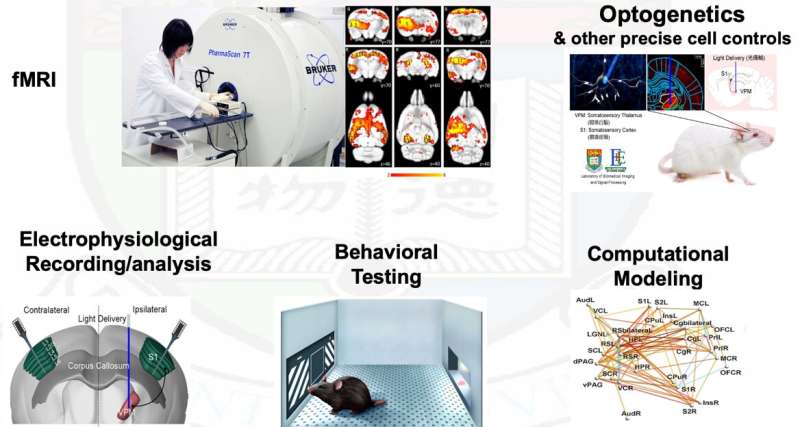This article has been reviewed according to Science X's editorial process and policies. Editors have highlighted the following attributes while ensuring the content's credibility:
fact-checked
peer-reviewed publication
trusted source
proofread
Researchers elucidate thalamus-related memory strengthening dynamic

One of the key functions of the brain is memory consolidation, which is the process by which memories are stored and retrieved. Thalamic spindle activities are a type of oscillatory activity in the brain that has long been believed to support memory consolidation. However, until now, the exact mechanisms by which this occurs have remained unclear.
A research team led by Professor Ed X. Wu, Lam Woo Professorship in Biomedical Engineering of Department of Electrical and Electronic Engineering, at the University of Hong Kong (HKU) aimed to tackle this complex question. They deployed state-of-art multi-modal tools to manipulate and interrogate rodent brains through whole-brain functional MRI (fMRI), cellular-level optogenetic manipulation, electrophysiological and behavioral readouts.
The team discovered that when the thalamus of the rodent was stimulated at a slow frequency and for a longer time, it evoked brain-wide slow spindle waves and activated many different areas of the brain. This helped the animal remember things better. They also found that certain areas of the brain became more active when the thalamus was stimulated in this way.
The study directly reveals that thalamic spindle activities propagate in a spatiotemporally specific manner and that they consolidate associative memory by strengthening multi-target memory representation. The paper, entitled "Functional MRI reveals brain-wide actions of thalamically initiated oscillatory activities on associative memory consolidation," has been published in Nature Communications.
"These findings revealed the thalamo-cortical spindle activities and the specific regions involved in spindle-associated memory consolidation. They now constitute the potential therapeutic targets in aging-related memory deficits," said Professor Wu.
More information: Xunda Wang et al, Functional MRI reveals brain-wide actions of thalamically-initiated oscillatory activities on associative memory consolidation, Nature Communications (2023). DOI: 10.1038/s41467-023-37682-8




















